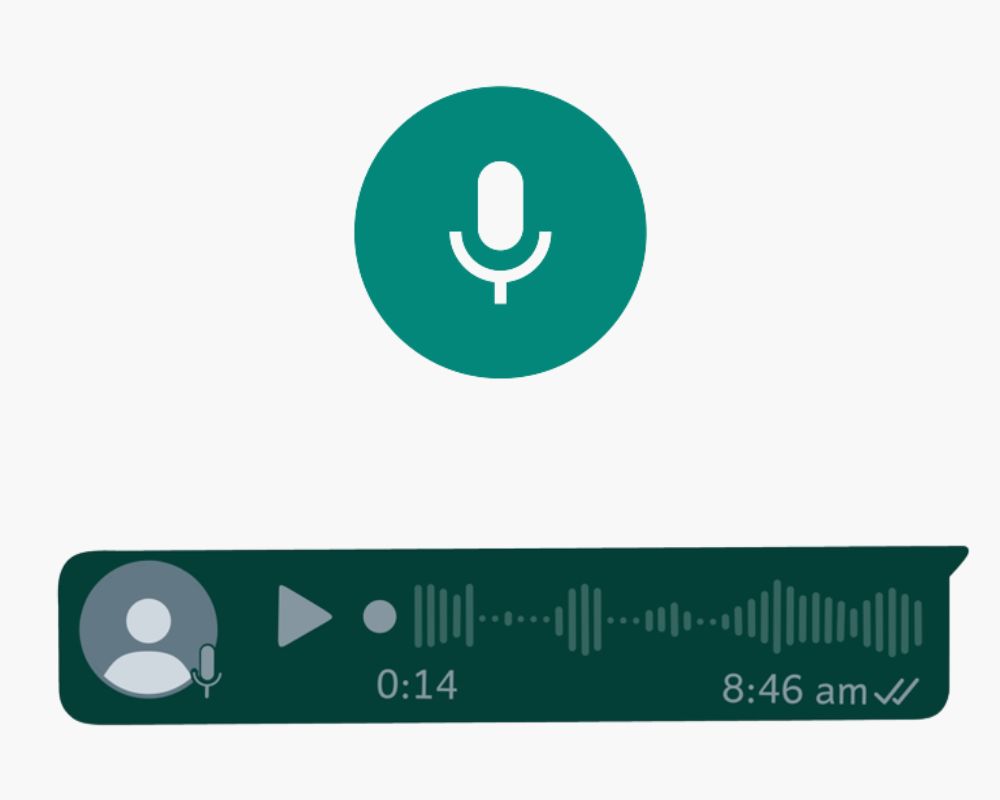You send a voice note. No reply. You check the chat—it’s gone. Not played. Not saved. Just missing. Whether it was a quick thought, a confession, or voice message you needed them to hear, it disappeared before they even opened it. And now you’re wondering if it failed to deliver, or auto-deleted.
This has nothing to do with bugs—it’s how modern messaging apps handle audio, and why certain voice messages vanish before the person on the other end ever hits play.
Why Voice Messages Disappear Before Being Read
When a voice message disappears without being listened to, there’s always a cause. But it’s rarely obvious—and it varies by platform.
The most common reason is deletion by the sender. WhatsApp and Messenger both allow you to unsend a message for everyone in the chat, even if it hasn’t been played yet. If someone reconsiders what they sent—or tapped the mic by accident—they can remove it instantly from your thread.
Other cases are technical. If someone uninstalls an app like WhatsApp without backing up their messages, incoming voice notes can disappear from sync. The same goes for switching phones without restoring chat history—unplayed messages can vanish silently.
Storage cleaners and privacy apps can also wipe cached audio files if permissions aren’t set correctly. And while rare, some system optimizers on Android devices can auto-clear older media if internal space is low.
There’s also the chat-wide expiration setting. If a disappearing message timer was enabled mid-conversation—say, after your message was sent but before it was read—some apps apply it retroactively.
These cases all have one thing in common: you don’t get a notification. The message just disappears.
WhatsApp Voice Notes: View Once and Deletion Before Playback

WhatsApp introduced “View Once” for voice messages in 2023. It works the same as it does for photos—once the recipient hits play, the message deletes itself. But until then, it stays locked with a “1” icon and no preview.
But that’s not the only way voice notes disappear before playback. If the sender taps “Delete for Everyone,” the voice message is wiped from both ends—even if you haven’t listened. This works within roughly two days of sending, though the window can vary based on your WhatsApp version.
Another setting to watch is disappearing messages. If a chat has a timer enabled (24 hours, 7 days, etc.), all messages—including voice notes—auto-delete after that period, even if unopened. That timer starts from when the message is sent, not when it’s read.
You also won’t find these messages in your phone’s file manager. View Once voice notes aren’t saved locally. If the recipient clears cache, force stops WhatsApp, or switches devices, that unplayed audio is gone.
iMessage: Expiration Timers That Only Start After Playback
Apple’s default iMessage behavior for audio is misunderstood. Yes, voice messages expire—but only two minutes after they’re played, not when they’re received. If the message hasn’t been opened, it will stay in the conversation until someone listens or deletes the thread.
The problem starts when users have expiration settings set to “After 2 Minutes” but forget to tap “Keep.” That removes the message after listening, even if it wasn’t saved manually. But again—never before playback.
What users often misinterpret as a pre-playback disappearance is actually due to thread deletion, iCloud sync failure, or switching devices without backing up. iOS doesn’t always preserve unplayed voice messages during device transfers unless “Messages in iCloud” is enabled.
To stop messages from disappearing after playback, go to:
Settings > Messages > Audio Messages > Expire > Never
If the sender didn’t adjust that, they’re relying on the timer—and your voice note may vanish the moment it’s heard.
Instagram and Messenger: Vanish Mode and Unsent Audio
Instagram and Messenger offer two ways for audio to disappear before playback—unsending and Vanish Mode.
If someone deletes a voice message before you play it, it’s gone. Meta doesn’t keep a record, and there’s no notification unless you were already in the chat when it was sent.
Vanish Mode works differently. When enabled, messages disappear once the recipient leaves the conversation thread. That includes voice notes—even if unopened. The only way to avoid this is to disable Vanish Mode before sending anything you care about keeping.
Also worth noting: voice messages in regular (non-Vanish) mode on both platforms don’t auto-delete. They remain until manually removed or the conversation is archived or deleted.
Telegram, LINE, and Viber: Secret Chats and Timed Expiry
On Telegram, regular voice messages persist unless deleted. But in secret chats, users can enable a self-destruct timer for all messages, including voice. These timers start ticking the moment a message is viewed—or, for voice notes, the moment they’re opened. If the message isn’t played, it stays visible until someone taps it.
LINE doesn’t delete voice messages by default. But if a user clears chat history or switches devices without restoring backups, they’re gone. LINE’s backup feature doesn’t always include media unless toggled manually.
Viber supports timed disappearing messages in secret chats only. Regular messages, including audio, are stored until deleted. However, Viber’s cache system can auto-delete older media on low-storage devices, especially if background permissions are restricted.
Can You Recover a Voice Message That Was Never Played?
If the message was deleted manually—by the sender or due to app settings—recovery is nearly impossible.
On WhatsApp, your only hope is restoring from a backup that was created after the message was received but before it was deleted. That means daily cloud backups need to be enabled. Local backups don’t always preserve View Once content.
For iMessage, recovery requires restoring your entire iPhone to a prior Finder or iCloud backup. If the message was never saved or played, and the sender didn’t tap “Keep,” it likely won’t be there.
Instagram and Messenger? No recovery. Once a message is unsent or cleared from Vanish Mode, there’s nothing stored on the device or in the cloud.
Third-party tools that claim to restore deleted voice messages rarely work unless the file still exists in unencrypted storage. And View Once messages, by design, aren’t written to disk.
How to Stop Voice Messages from Disappearing Too Soon
If you want voice messages to stay put, you have to change your defaults—and your habits.
Start by disabling disappearing features. In WhatsApp, don’t use View Once unless you’re prepared to lose the message after playback. Disable chat timers for important conversations.
For iMessage, set expiration to Never, and ask your contacts to do the same if they’re sending audio you want to keep. Encourage tapping “Keep” after listening.
Avoid Vanish Mode on Instagram and Messenger for anything you might want to replay.
And if something sounds important, save it yourself. Export the audio, forward it to your own chat, or record it from speakerphone if you have to. Privacy tools are designed to delete fast. It’s on you to keep what matters.
Final Thought
Apps now treat voice messages like disposable content—but sometimes, they’re not. They’re the apology you can’t re-record. The proof you forgot to save. The only version of something someone won’t say twice. So before you trust auto-expiration or privacy settings, ask yourself: what if this is the only time I’ll hear it?
If your next voice message disappears before it’s heard—will that be your choice, or theirs?

